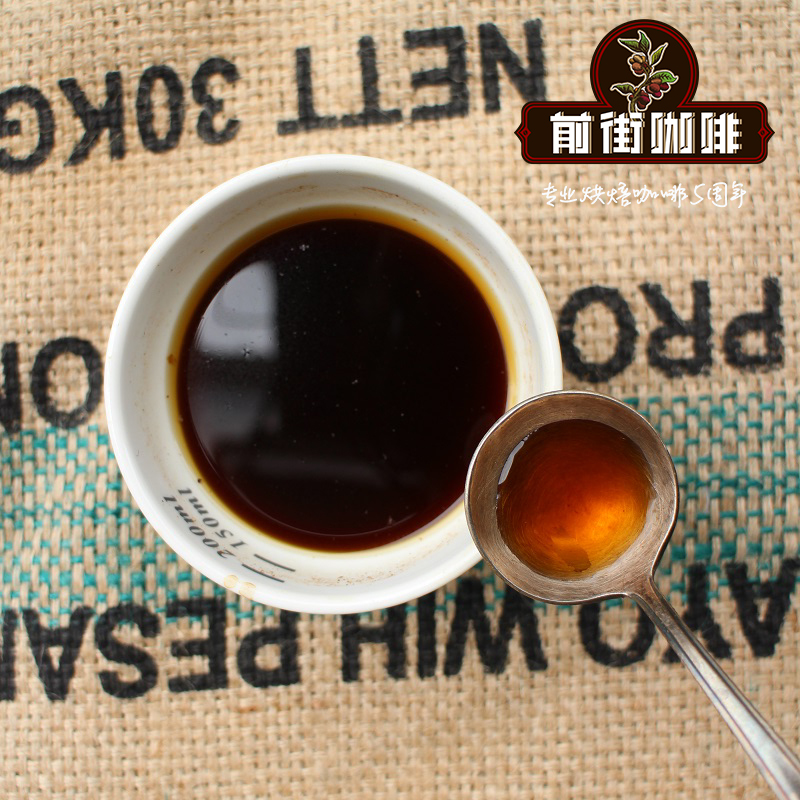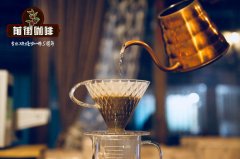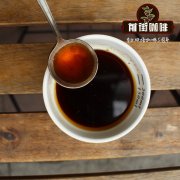Las Delicias Farm in El Salvador how much coffee is produced in El Salvador?

Professional coffee knowledge exchange more coffee bean information please follow the coffee workshop (Wechat official account cafe_style)
El Salvador is one of the small countries in Central America with a dense population. The flavor of its coffee is characterized by excellent balance. Today, this coffee accounts for 40% of the country's exports. 35% of the extra hard beans of the best coffee are exported to Germany from January to March.
In the early 1990s, guerrilla warfare greatly damaged the country's national economy, reducing coffee production from 3.5 million bags in the early 1970s to 2.5 million bags in 1990-1991. The eastern part of the country was most affected by guerrilla warfare, and many farmers and workers were forced to leave the manor. The shortage of funds has led to a sharp drop in coffee production, from 1200 kg per hectare in the past to less than 900kg per hectare today.
In addition, the government imposed an additional 15% tariff on exported coffee in 1986, that is, an additional 15% in addition to the existing 30% tax. Taxes, together with unfavorable exchange rates, have greatly reduced the export of coffee and the quality of coffee. The government finally realized the great role of coffee in the national economy, such as solving employment, earning foreign exchange and developing agriculture, so it privatized some coffee export industries in 1990, hoping to increase the income rate of coffee in the export market.
In Cuscacbapa, El Salvador, packaged coffee beans are about to be exported to El Salvador. Coffee from El Salvador is a specialty of Central America, where it is light, aromatic, pure and slightly sour. Like Guatemala and Costa Rica, coffee in El Salvador is graded according to altitude, and the higher the altitude, the better the coffee. The best brand is Pipil, which is what the Azbec-Mayan (AztecMayan) called coffee, which has been approved by the American Organic Certification Society (Organic Certified Institute of America).
Las Delicias
Owner / Coop member: CAFINO SA de CV
Region: Apaneca-Ilamatepec Mountains
Altitude: 1600-1900 masl small
Climate: humid-tropical
Temperature range: 8-21 degrees
Soil: volcanic year
Rainfall: 4000 mm
Farm Story:
Las Delicia's state farm is located in the Ilamatepeq Mountains of Canton Palo de Campana, which is one of the finest coffee in El Salvador. It is also one of the most important coffee growing areas in El Salvador.
The excellent Cup comes from the planting area, the natural process of planting PACAMARA and other batches of SL-28, and drying on an African bed for 28 days. We poured a small amount of water every two hours in the first three days to slow down the spread of sugar to beans. From 12:00 to 2:00 on the third day, the bed will be covered every day.
The farm works throughout the year in accordance with the Agreement, which defines all work to be done on the farm, depending on the strategic planning of the plantation. For example, we define the work in its order, using pruning methods, coffee pruning, wind barrier pruning periods, defined as 5-year remediation methods, according to the fertilization formula of soil analysis, cleaning strategies and all farm projects involved. Wait.
These defined protocols enable us to obtain tracking documentation for farm development, thus providing us with traceability support.
The result of the bumper harvest method gives us the opportunity to process our coffee with a good start. We believe that the most important role in this process is the harvester.
As a social responsibility, we are promoting a happiness-based "Happy people" program, and we encourage our team to find happiness in their daily work. All we do is look around and smile. We believe that happy people will work better and be productive.
As a family, we inculcate the farm regularly. The farm has strict planning supervision every week to manage the plans defined after the harvest. We see the collaborators as part of the team, and everyone is aware of the goals and goals defined.
Founded in the early 1950s, it consists of coffee and cypress trees.
Ownership: CAFINO SA de CV.
In 2003, 2015, 2015, 2016, 2016, 2017, winner of the Excellence Cup.
Coffee has been grown on this farm since the 1950s because of climatic conditions. Our sister company, CAFESCAL, has been commercializing coffee from this farm for the past few years. The opportunity to buy a farm came in September 2014. So, knowing the quality of the coffee produced on the farm, we decided to create a sister company, and we did it. Know that it has been integrated into the CAFESCAL group that runs the farm and its processes.
Qianjie coffee is recommended to be brewed in 90-92 degrees water with the flavors of plum, dark chocolate, fruit, dried rose, blood orange, spice, cedar and peach.
Qianjie coffee: Guangzhou bakery, the store is small but a variety of beans, you can find a variety of unknown beans, but also provide online store services. Https://shop104210103.taobao.com
Important Notice :
前街咖啡 FrontStreet Coffee has moved to new addredd:
FrontStreet Coffee Address: 315,Donghua East Road,GuangZhou
Tel:020 38364473
- Prev

Los Pirineos Farm in El Salvador what are the varieties of coffee grown in El Salvador?
Professional coffee knowledge exchange more coffee bean information please follow the coffee workshop (Wechat official account cafe_style) Outstanding Cup is the most prestigious competition and high quality coffee award. The level of scrutiny experienced by the Excellence Coffee Cup is unparalleled in the specialty coffee industry. Every year, thousands of coffees are submitted for consideration, among which award-winning coffees are sold at preferential prices in global online auctions.
- Next

How about Malawian coffee? How to make Malawian Rosa Coffee by hand? Introduction of Malawi EAFCA
Professional coffee knowledge exchange more coffee bean information please follow the coffee workshop (Wechat official account cafe_style) Malawi Republic located in the southern part of East Africa landlocked countries north of Tanzania, west of Zambia, across Lake Malawi (Africa's third largest lake) east of Mozambique, Malawi's population of about 12.5 million people, Malawi Geisha species, mainly by Misuk
Related
- Does Rose Summer choose Blue, Green or Red? Detailed explanation of Rose Summer Coffee plots and Classification in Panamanian Jade Manor
- What is the difference between the origin, producing area, processing plant, cooperative and manor of coffee beans?
- How fine does the espresso powder fit? how to grind the espresso?
- Sca coffee roasting degree color card coffee roasting degree 8 roasting color values what do you mean?
- The practice of lattes: how to make lattes at home
- Introduction to Indonesian Fine Coffee beans-- Java Coffee producing area of Indonesian Arabica Coffee
- How much will the flavor of light and medium roasted rose summer be expressed? What baking level is rose summer suitable for?
- Introduction to the characteristics of washing, sun-drying or wet-planing coffee commonly used in Mantenin, Indonesia
- Price characteristics of Arabica Coffee Bean Starbucks introduction to Manning Coffee Bean Taste producing area Variety Manor
- What is the authentic Yega flavor? What are the flavor characteristics of the really excellent Yejasuffi coffee beans?

